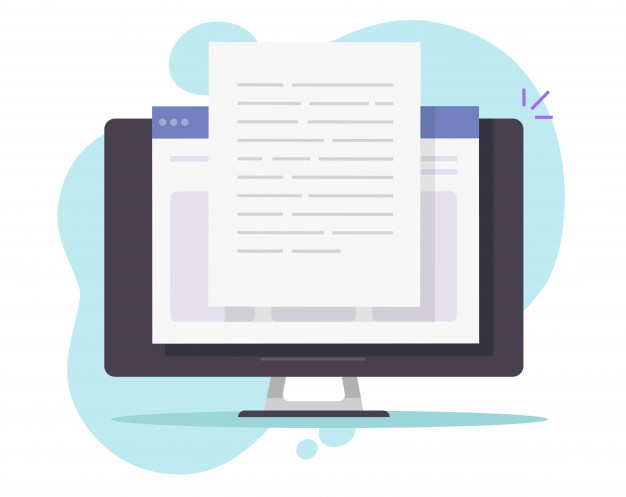
6 Bad Forces Of Web Writing
You will keep getting a high bounce rate if you keep making these mistakes while writing for the web.
We often talk more about what makes content good, accurate grammatical expression, excellent punctuations, utilizing keywords, etc. As good as this may sound, it contributes to driving our attention away from the bad forces of web writing.
Web writing can be tricky and hard to achieve, it requires a good grasp of the skill and careful arrangement of words to develop unique content that stands out from similar content. This article will help you understand What is web writing Bad forces of web writing Best practices for web writing
WHAT IS WEB WRITING Writing for the web is not the same as writing for other purposes. The usability of web material is equally as important as the content itself, and it follows its own set of writing norms. It is pertinent to have a quick grasp of what web writing is all about.
Web writing is a form of writing that focuses on developing written content for digital products. It walks across writing blog posts, ebooks, UX copywriting, white papers, product descriptions, landing pages, etc.
Bad Forces of Web Writing Take a quick look at some of these mistakes that can ruin your web writing.
- Inadequate Understanding of your Audience
- Descriptive Narratives
- Keyword Stuffing
- Using Complex Language
- Ignoring User Experience
- Features Over Benefits
INADEQUATE UNDERSTANDING OF YOUR AUDIENCE If you do not understand who you are writing for, you will end up writing for everybody leaving your real audience in a struggle to get value. Before you sit down to write any web content, you have to ask yourself these questions: Who am I writing for? What do they want? How do they understand words?
The answers to these questions will help you to find the right persona and also tailor your content to suit their needs. Identify a target audience by getting to know your users. Consider how you would feel if you were in their situation. Consider their age, work, family size, interests, and hobbies, and imagine what a regular day might be like for them. This data will assist you in determining your users' needs and writing content that they will find useful.
The fact remains that people look for what they want in less than 10 seconds and will leave your page or write up if you do not write it to meet them directly.
DESCRIPTIVE NARRATIVES Your audience will quickly get bored if you keep on giving them long details. Good web writing will reveal what you want your audience to know in the first few lines. They'll probably move on if they have to read through paragraphs of useless information to get to the "heart" of your product or service. If you must minimize the bounce rate on your write-up, you have to write in the inverted pyramid form with the assumption that your readers are skimmers.
To emphasize crucial information, use bullets. Make use of bolded headings. Paragraphs should be separated (limit each paragraph to three to five sentences, max) Make use of visuals such as infographics, tables, and images. To highlight information, use callout boxes and sidebars. Make extensive use of white space. Add relevant page links.
KEYWORD STUFFING Keywords are very necessary to ensure that your content ranks on google’s search page. However, there is no reason to compromise the conversational feel of your material in favor of keyword stuffing, especially given Google's constant algorithm adjustments and the massive amount of information available on the internet. Writing for google’s search engine without considering your audience perception will downplay your efforts to make your content readable and reverse the intent of a high google ranking.
USING COMPLEX LANGUAGE The use of complex sentences and words makes your write-up harder to read. Keep it simple, catchy, and straight to the point so the user's experience can be seamless. If you must use industry and technical jargon, always explain it in a way that the reader does not feel lost or unqualified to keep reading.
The fact is that potential customers that have little or no knowledge of the field will easily give up, especially if they came to your website with the motive of learning.
IGNORING THE USER'S EXPERIENCE
Most web writers feel it is all about dropping written content for a website without considering the general aesthetics of the website and user experience. This error implies that you may have your end-user misplaced priorities.
In most cases where the picture says it all, the text should be minimal to further give attention to the picture.
Ask yourself these questions How should I place my write-up on the web page? Where should I place my texts? Which fonts and font size is appropriate? How do I ensure consistency in alignment? Does my text align with the placement of other web elements?
FEATURES OVER BENEFIT
The stream of web writing where features are the core point of emphasis does yield many results. The impact of this is that you will end up talking about yourself and the product and not what your audience needs
Best Practices For Web Writing
Web writing just like every other writing needs certain peculiar tips to provide apex results.
The simpler the better Write with an exact focus Write for your persona Avoid grammatical errors Focus on the benefits and value Do not neglect the design thinking stage Carry out adequate keyword research Write for humans and not for algorithm Don't forget to infuse a call to actions Write for skimmers
Have you heard about "not enough writers" a hub of writers that gives your business a quick upscale in your ROI?
Check them out via telegram now, you won't bother checking twice to find the best fit…
